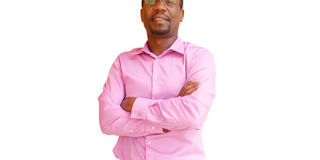Gabon flirts with a coup for all the usual reasons

Bernard Tabaire
What you need to know:
- Coups. Disaffection mostly rises from poverty and existence of very few opportunities for self-advancement (one third of Gabonese live below the poverty line amidst oil riches), political exclusion, rigged elections, and criminalisation of dissent.
The Gabonese seem lousy at these coup d’état things. The 1964 coup lasted only two days, thanks to the French paratroopers who kicked the backsides of the putschists. Reinstated, President Léon M’ba and jailed scores of his political opponents.
And on Monday last week, elements of the Gabonese military were at it again. They fared even worse than their predecessors. No sooner had they stormed state radio and TV (who still does that?) to announce the restoration of democracy than loyalist soldiers rounded them up, killing two in the process. A trial in the court martial may yet follow. What is intriguing for me is not that Gabonese soldiers are losing coup makers; it is that most coups in Africa spring from the same foundations.
Disaffection mostly rises from poverty and existence of very few opportunities for self-advancement (one third of Gabonese live below the poverty line amidst oil riches), political exclusion, rigged elections, and criminalisation of dissent. Add a rapidly growing population and you have a potentially explosive mix.
It is unsurprising that the soldiers, on Monday appealed to Gabonese youth to step forward, go into the streets and make the coup a reality. To appeal to the youth is recognition of their numbers, plus of course energy and enthusiasm for change. On this point the coup makers were astute. In the particular case of Gabon, there is something else: the fact that one family, which is not royalty, has been in power for more than 50 years.
It is a family that grows richer as most of those it governs grow poorer. Yet it clings to power with no sign of budging — not even when elections go against it like happened in 2016.
Even worse, President Ali Bongo Ondimba (formerly Alain Bernard Bongo) won’t step aside even temporarily yet he has been sick and out of the country since October 2018. This level of entitlement can only be tolerated for so many decades.
The coup attempt may have come a cropper, but unless the issues are sorted, unless the people start to feel free (including the majority who are not elite and are not freemasons) and hopeful, the Bongos and their eating friends may end badly.
A coup by the soldiers or a street uprising led by the youth, or some such combination, may just do it. You would think this stuff is obvious to Bongo and friends and others like them in the other concerned capitals on the continent. Apparently, they are not because of living in huge bubbles.
I used to hate coups at a personal and intellectual level largely because they represent political failure that is wide and deep in the particular society. It seems I was in denial about Uganda having thus failed because of its many glorious coups and semi-coups and blood-soaked politics.
But these days, in middle age, I am not sure that change by whatever means is necessarily a bad thing. Sometimes there is just one way to bring about change even for the heck of it. After all, how will you know with certainty what change, however it comes about; will look like unless there is actually change in the first place?
Anyways, if Gabon is floundering as it seeks change, it may just be morning in DR Congo. Opposition leader Felix Tshisekedi was announced winner of the presidential election, marking the first time our humongous western neighbour is changing the presidential baton peacefully in its modern life.
While at it, the president-elect has grabbed a spot his dad, Etienne, had coveted for decades only to die without getting there or witnessing the triumph of the son.
Of course, as many things political in DR Congo, there is a twist. Apparently, President Joseph Kabila, the reluctant outgoing chief, may have fixed the result for Mr Tshisekedi, and not for his chosen heir — Ramazani Shadary.
Naturally, the assumed real winner, Mr Martin Fayulu, will have none of it, and the powerful Catholic Church seems to agree. My early guess is that the church and everyone else who cares about DR Congo will just suck it up and decide that this change is better than having the hapless Mr Kabila around. Besides, it is better than a coup.




